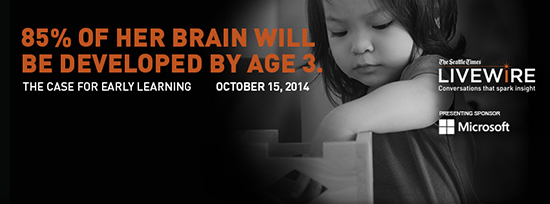Six interns ranging in educational paths from high school through post-college have joined the Institute for Learning & Brain Sciences. They’ll spend the month of July at the Institute. The internship is part of I-LABS’ outreach mission, which encompasses disseminating the latest science to a wide range of audiences and cultivating professional development in early-career scientists. “I think of … Read More
Preview: I-LABS Research at Human Brain Mapping Conference
The world’s largest conference for brain imaging researchers will take place June 14-18 in Honolulu, Hawaii. Held at a different location around the globe each year, the Organization for Human Brain Mapping conference is expected to attract about a thousand attendees to its 2015 meeting. About a dozen scientists from the Institute for Learning & Brain Sciences will be among the attendees. They … Read More
Best Practices in Screen Media
“…the screen should be the tool, not the teacher.” Can kids learn from screens? How much should kids watch? How old should they be? What kind of content is best? Those are some of the most common questions Sarah Roseberry Lytle, director of the I-LABS outreach team, hears from parents and caregivers regarding the role of digital media in young children’s … Read More
Preview: I-LABS Research at SRCD Meeting
One of the world’s largest and most prestigious scientific conferences will be held March 19-21 in Philadelphia. Held every other year, the Society for Research in Child Development’s meeting attracts thousands of researchers and other experts sharing the latest developments in their field. Numerous scientists and outreach staff from the Institute for Learning & Brain Sciences will be among the attendees of the 2015 meeting. … Read More
Updated 3/11/15: #SXSWedu: Brain Science and Early Learning
I-LABS presented research at the South By Southwest EDU conference — check out a Storify showing what the audience had to say. In a first for the Institute, the I-LABS outreach team presented research findings at the South By Southwest EDU conference, called a “mecca for ed-tech” by Education Weekly. The meeting is in its fifth year and is intended to foster … Read More
Year in Review: I-LABS Most Popular News of 2015
Looking back at 2015, here are the discoveries and other accomplishments that received the most attention. Click the links to learn more! Between a steady stream of published research studies, public speaking engagements locally and around the world, and new national accolades—it’s been another record year for I-LABS scientists and outreach staff. January: New Year, New National Recognition What goes … Read More
I-LABS Research In Action at UW’s Brain Awareness Open House
To get tweens and teens interested in brain science, you gotta bring your A-game. Or, make that plural. The I-LABS outreach team took their fleet of brain games to the University of Washington’s 2015 Brain Awareness Week Open House. The annual event, held March 3 this year at the UW Hub, attracted about 650 schoolchildren to dozens of hands-on activities demonstrating … Read More
Sarah Roseberry Lytle Awarded National Zero to Three Fellowship
I-LABS’ director of outreach and education, Sarah Roseberry Lytle, has received a 2-year fellowship that will support her work disseminating the latest science of child development to those who can put the research into action. Lytle, who has a Ph.D. in developmental psychology from Temple University, is one of 10 fellows in the 2014-2016 class, representing eight states across the U.S. and … Read More
UW|360: “No Gadgets Required”
The television program UW|360 explores how online resources developed by I-LABS help parents and other caregivers put research into practice during everyday interactions with children. Photo caption: A screenshot of the UWTV program UW|360’s episode that profiles the I-LABS outreach team’s online training modules. “All the latest research is really telling us that kids are learning just so much in their … Read More
Q&A on ‘The Case For Early Learning’
How do children learn from birth to age 3? Our experts weigh in on what science shows in brain development, what parents and caregivers can do to help young children be school ready, and characteristics of quality early learning programs. Patricia Kuhl and Andrew Meltzoff, co-directors of the University of Washington’s Institute for Learning & Brain Sciences, will give a presentation “Brain Science and … Read More







